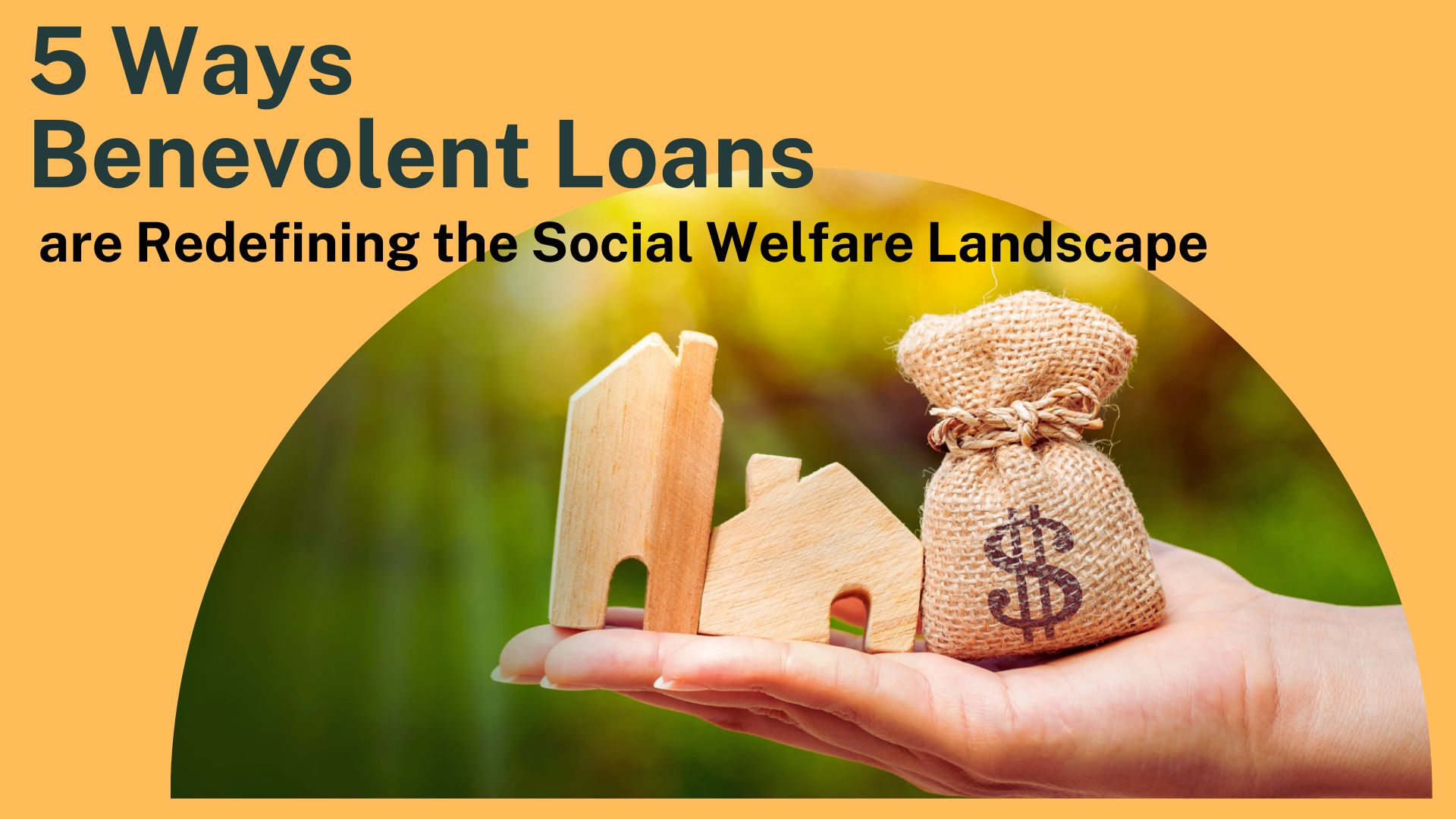5 Ways Benevolent Loans Are Redefining the Social Welfare Landscape
Benevolent loans are redefining the landscape of social welfare. Often referred to as “Qard-e-Hasan” in Islamic finance, these interest-free loans offer individuals a lifeline to financial assistance. The buzzword here is ‘interest-free’. The significant impact of these no interest loans in the social welfare sector testifies that a poverty-free world isn’t a mirage. The benevolent act of extending a helping hand to those in need has the potential to form a chain reaction. Their aftermath is the shunning of the concept of begging while encouraging the idea of a resilient and self-made community.
Pioneering Financial Inclusion
It is unfortunate that a major chunk of the global population finds itself excluded from the formal financial ecosystem. High interest rates and strict eligibility criteria are to blame. Here, benevolent loans, exemplified by the concept of Qard-e-Hasan, emerge as a dominating force to break down the barriers in the way of financial inclusion of the population.
Benevolent loans are beautiful sources of helping the masses with their roots embedded in compassion and accessibility. They offer marginalized individuals a pathway to engage with the formal economy. These loans empower the underprivileged in two main ways: by giving them the opportunity to construct a brighter future for themselves and their loved ones and by choosing and achieving their financial destinies. Qard-e-hasan loans are not concerned with credit scores or collateral-the factor that makes them unique and a better pathway to achieve financial inclusion.
Empowering the Entrepreneurial Spirit with Zero Interest
Entrepreneurship often serves as a powerful escape route from poverty, yet the daunting probability of high borrowing costs deters many aspiring entrepreneurs. Benevolent loans, however, flip the script. They offer interest-free financing options that serve as a beacon of hope for individuals looking for opportunities to create sustainable pathways out of poverty by initiating their small businesses.
Imagine a person who has the will to work and earn with his own hands- a budding entrepreneur in a developing nation- but lacks the resources; Benevolent loans step in to bridge this gap. They provide the required funds for business initiation or upgradation without the shadow of debt. This is the way to expedite economic growth as it generates job opportunities, a clear win for social welfare.
Easing the Burden of Financial Hardship
Life is an unpredictable journey, often riddled with unforeseen financial challenges. Unfortunate events like the death of a sole breadwinner in a family, a natural disaster, or fighting with a fatal disease or disability can plunge individuals and families into deep distress. Benevolent loans serve as a safety net during these tumultuous times.
Consider the aftermath of the disastrous floods of 2022 in Pakistan, where communities were left reeling from the devastation. Their homes were washed away. Benevolent loans raised by the philanthropic organizations provided immediate financial assistance to those affected and empowered them to rebuild their lives. The disassociation of heavy interest rates with these loans mitigates the impact of financial hardship on social welfare.
Nurturing a Culture of Philanthropy
Benevolent loans are not just about financial support; they also nurture a culture of giving and philanthropy. In many instances, these loans are funded by individuals, organizations, or religious institutions driven by the principles of compassion and social responsibility.
These loans offer a shining chance for people to actively participate in the betterment of their communities. By extending a benevolent hand through these loans, donors play an instrumental role in enhancing social welfare. Meanwhile, borrowers benefit from this generosity while preserving their dignity.
Encouraging Responsible Financial Behavior
Responsible financial behavior is the linchpin of long-term financial well-being. Benevolent loans, in addition to providing financial assistance, play a pivotal role in encouraging responsible borrowing and fostering financial literacy.
Recipients of benevolent loans often receive financial education and training that equips them with the knowledge and skills required to navigate their financial journey. This empowerment enables them to make informed financial decisions, plan for the future, and avoid the cycle of debt. The fee-free education program of Akhuwat is a pearl in the string of such socially responsible entities providing no interest loans for educating the masses in Pakistan.
Encompassing the Qard-e-Hasan philosophy, interest-free loans are poised to reshape the social welfare landscape. As communities struggle with economic disparities and social inequalities, these benevolent loans serve as a beacon of hope. They possess the power of compassion and unity in molding a brighter future for all.


